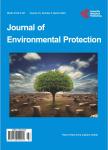Environmental Sustainability: A 30-Year Progress Assessment in Portugal
Environmental Sustainability: A 30-Year Progress Assessment in Portugal作者机构:Faculdade de Ciências da Universidade de Lisboa Lisboa Portugal MARE-Marine and Environmental Sciences Centre Faculdade de Ciências da Universidade de Lisboa Lisboa Portugal
出 版 物:《Journal of Environmental Protection》 (环境保护(英文))
年 卷 期:2019年第10卷第11期
页 面:1507-1535页
学科分类:02[经济学] 0202[经济学-应用经济学] 020201[经济学-国民经济学]
主 题:Environmental Sustainability Indicators Sustainable Development Goals 2030 Agenda
摘 要:Sustainable development is a common goal for all countries since the concept was adopted at the 1992 Rio Conference. European Union (EU) became a world leader in most of indicators despite successive enlargement of country members with newcomers often facing basic environmental problems. In 1986, Portugal became a member of the European Economic Community (EEC), and immediately began to reflect its environmental policies. Over the last 30 years, the support of EU funds and the implementation of environmental public policies in Portugal, have been essential for the country’s sustainable development. As a result, Portugal’s standards started to be closer to those of the EU and, in some cases even exceeded it. The present article addresses, for the first time, a long series of 30 years (1987-2017), in a retrospective analysis of a set of indicators, in order to characterize the evolution of Portugal’s environmental sustainability, its relationship to the national public policies, and in the context of the EU. The progress of the indicators towards specific environmental sustainability targets is also evaluated. Moreover, a set of key indicators that also evaluate the goals of the 2030 Agenda for Sustainable Development are identified. The results show that the evolution of Portugal’s environmental sustainability in the last 30 years was remarkable. The water standards, air quality, urban waste, and energy sectors showed high improvement. However, the evolution in the sectors such as land use, and environmental risks, particularly forest fires, were negative. On the other hand, for some indicators, such as renewable energies or bathing water quality, Portugal performed better than the EU-28. Environmental performance shows the positive influence of EU environment policies and structural support, changing dramatically the quality of the environment in Portugal, from a negative situation to a success case study in a generation period.



